#penguin publishing
Text

Edward Young | Jan Tschichold | Anatomy of Logos
22 notes
·
View notes
Text

I did the Penguin Publishing thing for the first story in my series Gap Year!
Make your own here:
Also, you can read it here:
#stranger things#stranger things fanfiction#fanfic#penguin publishing#eddie munson#ao3#questionable writes
5 notes
·
View notes
Link
Check out my review of The September House
1 note
·
View note
Text
Review: The Taking of Jake Livingston by Ryan Douglass
Review: The Taking of Jake Livingston by Ryan Douglass #AmReading #Horror #BookTwitter
Title: The Taking of Jake Livingston
Author: Ryan Douglass
Publisher: G.P. Putnam’s Sons
Length: 255 Pages
Category: YA, Paranormal Thriller, Horror
Rating: 5 Stars
Content Warnings: See below as part of my review
At a Glance: The Taking of Jake Livingston is a tour de force of horror, an absolute spectacle of storytelling, and the very definition of unputdownable.
Reviewed By: Lisa
Blurb:…

View On WordPress
0 notes
Text
Room and Board by Miriam Parker--Book Review
Happy Monday! Room and Board by Miriam Parker comes out Tuesday, August 16. Drop by to read my forthright review of this new novel. Happy Reading!
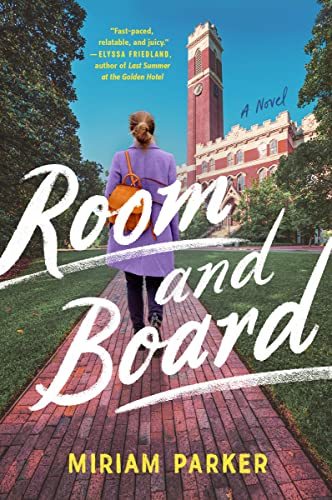
https://bibliophileandavidreader.blogspot.com/2022/08/room-and-board-by-miriam-parker.html
#roomandboard#penguingroup#penguin publishing#theavidreader#mirian parker#womens fiction#contemporary fiction#fiction#romance#the avid reader
0 notes
Text
bucket list item: buying every single one of the clothbound penguin classics ever made
#aesthetic#dark academia#coffee#art#books#academia#college#light academia#studyblr#literature#Poetry#Poems#Novels#Stories#Writing#Writersblr#penguin random house#Publishing#penguin clothbound classics#Classics#penguin classics#Reading#books and reading#dark academia aesthetic#dark academia quotes#light academia aesthetic#Bucket list#Collections#Hardbound
183 notes
·
View notes
Text

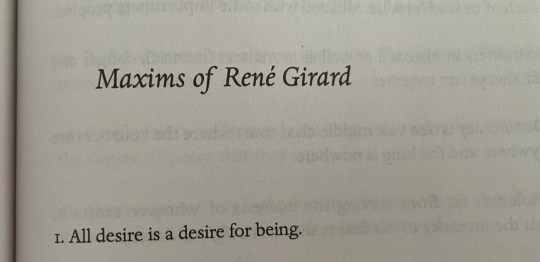
rip to the maxims of rene girard but i am going to live laugh lovify them
#some of them are very silly and others are like. hrgh#also! girard penguin! published this june! very exciting!#beeps
255 notes
·
View notes
Text
came across an interesting substack article detailing information from the doj vs prh trial in 2022. here's a metric for deal size vs anticipated sales figures for each book acquired by PRH:

essentially, this means that if the publisher (PRH in this case) thinks you'll sell 75,000 units (purchased copies of your book, though this particular graphic doesn't specify format) or more, you'll get at least a major deal/$500,000 or more. i knew that the size of the advance directly related to how many copies the publisher thinks will sell, but i had no idea of the exact numbers before
70 notes
·
View notes
Text
Private equity plunderers want to buy Simon & Schuster
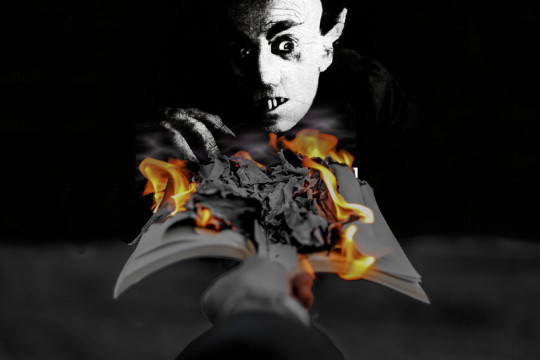
Going to Defcon this weekend? I'm giving a keynote, "An Audacious Plan to Halt the Internet's Enshittification and Throw it Into Reverse," on Saturday at 12:30pm, followed by a book signing at the No Starch Press booth at 2:30pm!
https://info.defcon.org/event/?id=50826

Last November, publishing got some excellent news: the planned merger of Penguin Random House (the largest publisher in the history of human civilization) with its immediate competitor Simon & Schuster would not be permitted, thanks to the DOJ's deftly argued case against the deal:
https://pluralistic.net/2022/11/07/random-penguins/#if-you-wanted-to-get-there-i-wouldnt-start-from-here
When I was a baby writer, there were dozens of large NY publishers. Today, there are five - and it was almost four. A publishing sector with five giant companies is bad news for writers (as Stephen King said at the trial, the idea that PRH and S&S would bid against each other for books was as absurd as the idea that he and his wife would bid against each other for their next family home).
But it's also bad news for publishing workers, a historically exploited and undervalued workforce whose labor conditions have only declined as the number of employers in the sector dwindled, leading to mass resignations:
https://lithub.com/unlivable-and-untenable-molly-mcghee-on-the-punishing-life-of-junior-publishing-employees/
It should go without saying that workers in sectors with few employers get worse deals from their bosses (see, e.g., the writers' strike and actors' strike). And yup, right on time, PRH, a wildly profitable publisher, fired a bunch of its most senior (and therefore hardest to push around) workers:
https://www.nytimes.com/2023/07/18/books/penguin-random-house-layoffs-buyouts.html
But publishing's contraction into a five-company cartel didn't occur in a vacuum. It was a normal response to monopolization elsewhere in its supply chain. First it was bookselling collapsing into two major chains. Then it was distribution going from 300 companies to three. Today, it's Amazon, a monopolist with unlimited access to the capital markets and a track record of treating publishers "the way a cheetah would pursue a sickly gazelle":
https://pluralistic.net/2023/07/31/seize-the-means-of-computation/#the-internet-con
Monopolies are like Pringles (owned by the consumer packaged goods monopolist Procter & Gamble): you can't have just one. As soon as you get a monopoly in one part of the supply chain, every other part of that chain has to monopolize in self-defense.
Think of healthcare. Consolidation in pharma lead to price-gouging, where hospitals were suddenly paying 1,000% more for routine drugs. Hospitals formed regional monopolies and boycotted pharma companies unless they lowered their prices - and then turned around and screwed insurers, jacking up the price of care. Health insurers gobbled each other up in an orgy of mergers and fought the hospitals.
Now the health care system is composed of a series of gigantic, abusive monopolists - pharma, hospitals, medical equipment, pharmacy benefit managers, insurers - and they all conspire to wreck the lives of only two parts of the system who can't fight back: patients and health care workers. Patients pay more for worse care, and medical workers get paid less for worse working conditions.
So while there was no question that a PRH takeover of Simon & Schuster would be bad for writers and readers, it was also clear that S&S - and indeed, all of the Big Five publishers - would be under pressure from the monopolies in their own supply chain. What's more, it was clear that S&S couldn't remain tethered to Paramount, its current owner.
Last week, Paramount announced that it was going to flip S&S to KKR, one of the world's most notorious private equity companies. KKR has a long, long track record of ghastly behavior, and its portfolio currently includes other publishing industry firms, including one rotten monopolist, raising similar concerns to the ones that scuttled the PRH takeover last year:
https://www.nytimes.com/2023/08/07/books/booksupdate/paramount-simon-and-schuster-kkr-sale.html
Let's review a little of KKR's track record, shall we? Most spectacularly, they are known for buying and destroying Toys R Us in a deal that saw them extract $200m from the company, leaving it bankrupt, with lifetime employees getting $0 in severance even as its executives paid themselves tens of millions in "performance bonuses":
https://memex.craphound.com/2018/06/03/private-equity-bosses-took-200m-out-of-toys-r-us-and-crashed-the-company-lifetime-employees-got-0-in-severance/
The pillaging of Toys R Us isn't the worst thing KKR did, but it was the most brazen. KKR lit a beloved national chain on fire and then walked away, hands in pockets, whistling. They didn't even bother to clear their former employees' sensitive personnel records out of the unlocked filing cabinets before they scarpered:
https://memex.craphound.com/2018/09/23/exploring-the-ruins-of-a-toys-r-us-discovering-a-trove-of-sensitive-employee-data/
But as flashy as the Toys R Us caper was, it wasn't the worst. Private equity funds specialize in buying up businesses, loading them with debts, paying themselves, and then leaving them to collapse. They're sometimes called vulture capitalists, but they're really vampire capitalists:
https://www.motherjones.com/politics/2022/05/private-equity-buyout-kkr-houdaille/
Given a choice, PE companies don't want to prey on sick businesses - they preferentially drain off value from thriving ones, preferably ones that we must use, which is why PE - and KKR in particular - loves to buy health care companies.
Heard of the "surprise billing epidemic"? That's where you go to a hospital that's covered by your insurer, only to discover - after the fact - that the emergency room is operated by a separate, PE-backed company that charges you thousands for junk fees. KKR and Blackstone invented this scam, then funneled millions into fighting the No Surprises Act, which more-or-less killed it:
https://pluralistic.net/2020/04/21/all-in-it-together/#doctor-patient-unity
KKR took one of the nation's largest healthcare providers, Envision, hostage to surprise billing, making it dependent on these fraudulent payments. When Congress finally acted to end this scam, KKR was able to take to the nation's editorial pages and damn Congress for recklessly endangering all the patients who relied on it:
https://pluralistic.net/2022/03/14/unhealthy-finances/#steins-law
Like any smart vampire, KKR doesn't drain its victim in one go. They find all kinds of ways to stretch out the blood supply. During the pandemic, KKR was front of the line to get massive bailouts for its health-care holdings, even as it fired health-care workers, increasing the workload and decreasing the pay of the survivors of its indiscriminate cuts:
https://pluralistic.net/2020/04/11/socialized-losses/#socialized-losses
It's not just emergency rooms. KKR bought and looted homes for people with disabilities, slashed wages, cut staff, and then feigned surprise at the deaths, abuse and misery that followed:
https://www.buzzfeednews.com/article/kendalltaggart/kkr-brightspring-disability-private-equity-abuse
Workers' wages went down to $8/hour, and they were given 36 hour shifts, and then KKR threatened to have any worker who walked off the job criminally charged with patient abandonment:
https://pluralistic.net/2023/06/02/plunderers/#farben
For KKR, people with disabilities and patients make great victims - disempowered and atomized, unable to fight back. No surprise, then, that so many of KKR's scams target poor people - another group that struggles to get justice when wronged. KKR took over Dollar General in 2007 and embarked on a nationwide expansion campaign, using abusive preferential distributor contracts and targeting community-owned grocers to trap poor people into buying the most heavily processed, least nutritious, most profitable food available:
https://pluralistic.net/2023/03/27/walmarts-jackals/#cheater-sizes
94.5% of the Paycheck Protection Program - designed to help small businesses keep their workers payrolled during lockdown - went to giant businesses, fraudulently siphoned off by companies like Longview Power, 40% owned by KKR:
https://pluralistic.net/2020/04/20/great-danes/#ppp
KKR also helped engineer a loophole in the Trump tax cuts, convincing Justin Muzinich to carve out taxes for C-Corporations, which let KKR save billions in taxes:
https://pluralistic.net/2020/06/02/broken-windows/#Justin-Muzinich
KKR sinks its fangs in every part of the economy, thanks to the vast fortunes it amassed from its investors, ripped off from its customers, and fraudulently obtained from the public purse. After the pandemic, KKR scooped up hundreds of companies at firesale prices:
https://pluralistic.net/2020/03/30/medtronic-stole-your-ventilator/#blackstone-kkr
Ironically, the investors in KKR funds are also its victims - especially giant public pension funds, whom KKR has systematically defrauded for years:
https://pluralistic.net/2020/07/22/stimpank/#kentucky
And now KKR has come for Simon & Schuster. The buyout was trumpeted to the press as a done deal, but it's far from a fait accompli. Before the deal can close, the FTC will have to bless it. That blessing is far from a foregone conclusion. KKR also owns Overdrive, the monopoly supplier of e-lending software to libraries.
Overdrive has a host of predatory practices, loathed by both libraries and publishers (indeed, much of the publishing sector's outrage at library e-lending is really displaced anger at Overdrive). There's a plausible case that the merger of one of the Big Five publishers with the e-lending monopoly will present competition issues every bit as deal-breaking as the PRH/S&S merger posed.
(Image: Sefa Tekin/Pexels, modified)

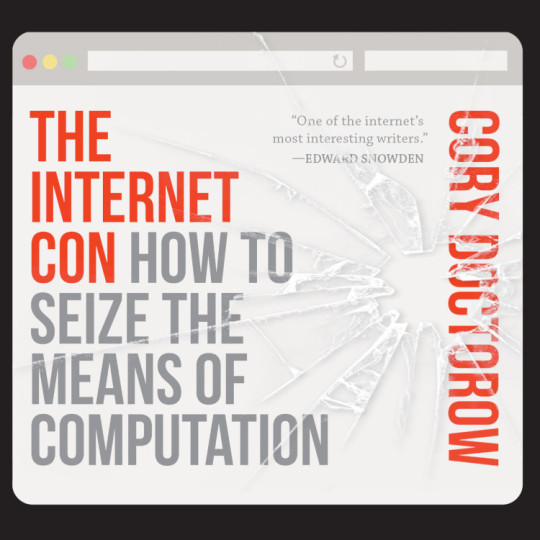
I’m kickstarting the audiobook for “The Internet Con: How To Seize the Means of Computation,” a Big Tech disassembly manual to disenshittify the web and bring back the old, good internet. It’s a DRM-free book, which means Audible won’t carry it, so this crowdfunder is essential. Back now to get the audio, Verso hardcover and ebook:
http://seizethemeansofcomputation.org

If you’d like an essay-formatted version of this post to read or share, here’s a link to it on pluralistic.net, my surveillance-free, ad-free, tracker-free blog:
https://pluralistic.net/2023/08/08/vampire-capitalism/#kkr

#kkr#simon and schuster#publishing#penguin random house#ppp loans#looters#plunderers#vampire capitalism#vulture capitalism#debt#private equity#pe#harmful dominance#monopoly#trustbusters#incentives matter#labor#writing#publishing workers#recorded books#overdrive#glam#libraries#toys r us#pluralistic
187 notes
·
View notes
Text
So are all American paperback books just terrible quality or is it just the ones I keep accidentally buying
#genuine question#bc if so how do you all live like this#or is it just a which ever publishing company made them#but yeah#a book i brought finally arrived today#and its just#who made this#and then i realized#it reminded me of my heroes of olympus books#which i accident brought from America#theyre like disney publishing#while all my other pjo books are penguin gb publishing#but the quality difference is just night and day#and now im just wondering if it is an American thing??
173 notes
·
View notes
Text
Milestone Monday

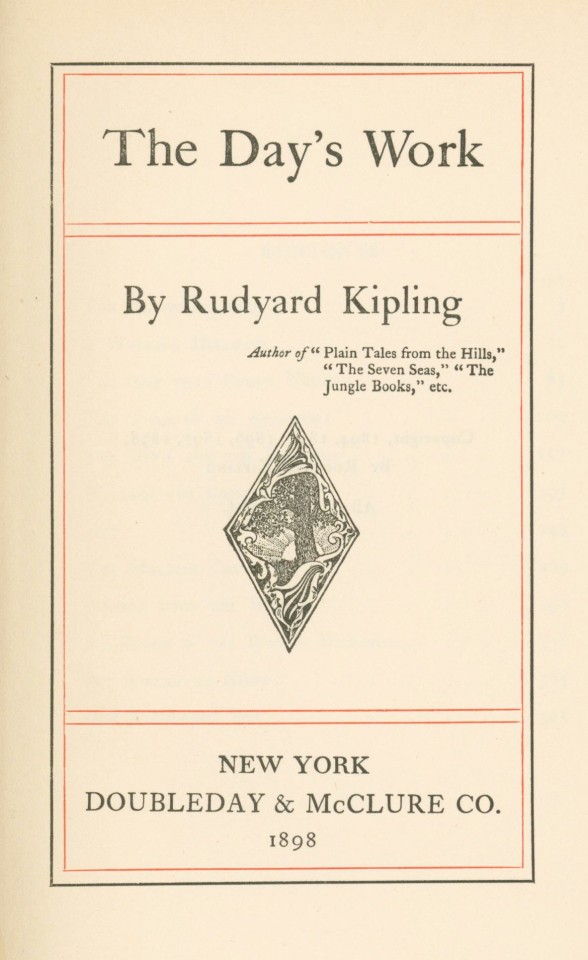


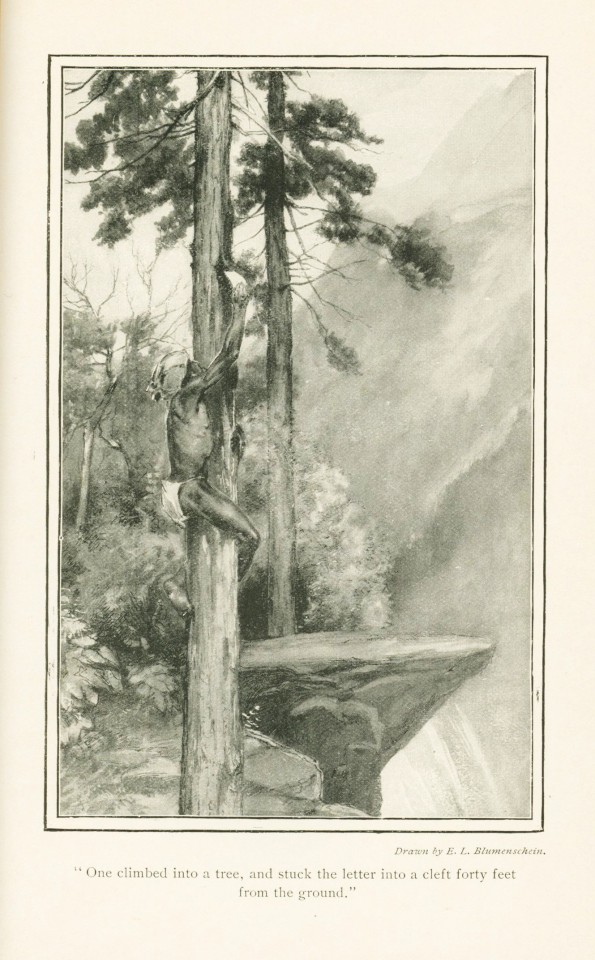

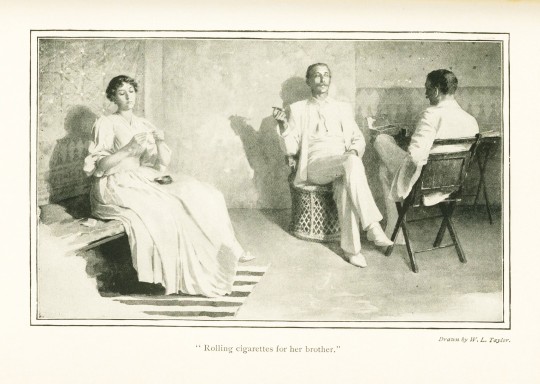


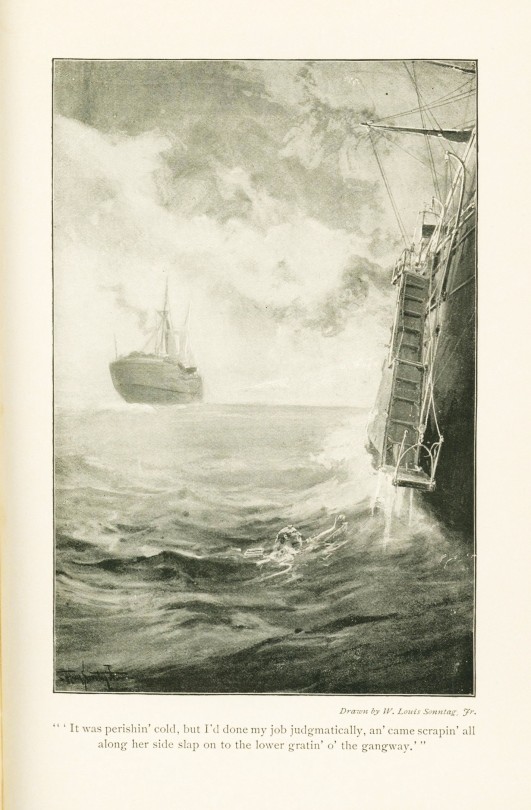
January 8th is the birthday of Frank Nelson Doubleday (1862-1934) who at age ten bought his own printing press to create advertisements and local Brooklyn news circulars and seventy-five years later was known as the co-founder of the largest publisher in the United States. At fifteen years old, Doubleday went to work at Charles Scribner’s Sons, eventually publishing Scribner’s Magazine and heading their subscription book department. After eighteen years, Doubleday left the company and partnered with Samuel Sidney McClure (1857-1949) to open their own publishing venture Doubleday & McClure Company in 1897.
Over the years, Doubleday & McClure Company worked with numerous notable authors and would evolve through a dizzying number of partnerships, acquisitions, and name changes while it grew into an international communications company, eventually settling into a merger with Knopf Publishing Group under Penguin Random House in the early 2000s. In its infancy, still known as Doubleday & McClure, the company found great success with Rudyard Kipling’s (1865-1936) bestseller The Day’s Work.
Published in 1898, The Day’s Work contains thirteen fictional short stories accompanied by illustrations throughout. The stories were written between 1893 and 1896 while Kipling was living in his Bliss Cottage in Vermont and simultaneously working on The Jungle Book. Unlike many of Kipling’s other collections, there are no poems dividing the stories within The Day’s Work. The black and white illustrations within the collection were drawn by four different artists including, William Dodge Stevens (1870-1942), William Louis Sonntag Jr. (1869-1898), Ernest Leonard Blumenschein (1874-1960), and William Ladd Taylor (1854-1926); each leaning into their strengths to support Kipling’s vivid narrative.
Read other Milestone Monday posts here!
– Jenna, Special Collections Graduate Intern
#milestone monday#milestones#frank nelson doubleday#doubleday & mcclure company#charles scribner's sons#samuel sidney mcclure#penguin random house#knopf publishing group#rudyard kipling#the day's work#the jungle book#william dodge stevens#william louis sonntag jr.#ernest leonard blumenschein#william ladd taylor
20 notes
·
View notes
Text

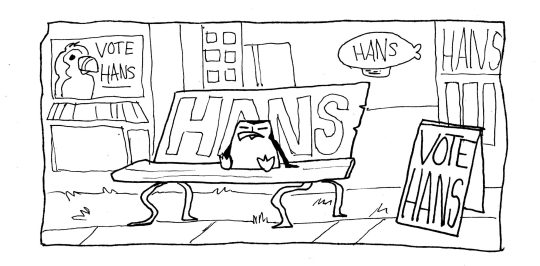

no context november
#my art#fanart#penguins of madagascar#tpom#kowalski#skipper#rico#well... if you really need some context.... I will tell you that this is fanart for my unpublished unfinished untitled fanfic#job has been going so well lately that I once again have the mental energy to think about this fic#except last week which was an emotionally difficult outlier but most of that stuff actually worked out fine#anyway....... I originally had four panels planned... but then i realized the fourth was a major spoiler hiding in plain sight#so... I skipped that panel on the .001% chance I actually publish this fic someday#OLL
79 notes
·
View notes
Text
Puffin does this out of fear of lower sell in to stores not sensitivity to children. The whole point of Dahl is to not be sensitive to children. They're smarter than adults think and they get that some people besides witches are bald and all bald people aren't bad.
Turning a writer into a declawed cat trapped in a room of bully mice sounds like the kind of ending Dahl would write... and a Puffin editor would later take out because it was too mean and scary.
#puffin#penguin random house#authors#writers#writing#sensativity readers#editors#retail#book publishing#edu ators#literary criticism
40 notes
·
View notes
Text
Two takes I have seen:
"I can't believe I'm seeing leftists saying piracy is good!"
"I can't believe I'm seeing leftists saying piracy is bad!"
Myself, I have pretty strict requirements for when I'm willing to pirate music (although my dad and I basically share all our digital music with each other so I've been the beneficiary of piracy I wouldn't personally commit). If the artist is still alive and the music is available for digital purchase, I'll almost always buy it, on Bandcamp if possible, on iTunes or Amazon otherwise.
But then it occurred to me that I could probably get the music I want off iTunes a lot cheaper if I bought used CDs.
And then it occurred to me that this wouldn't actually benefit the artists any more than if I pirated their stuff.
I suppose it helps preserve the scarcity somewhat, but not entirely, because the previous owner of the CD could easily have ripped it and still have access to the music.
I'm still leaning toward buying the CDs, because something is telling me I should. I don't know if that thing is a moral principle I haven't quite articulated to myself, or insidious conditioning from capitalism. But it makes you think, doesn't it?
#capitalism may or may not have been made by birbs#the publishing industry may or may not have been made by birbs#and now for something completely different#terminal penguinitis#ethics
3 notes
·
View notes
Text

Reblogs were turned off so here is the post
The Verge article
Relevant tweet
#intellectual freedom#media preservation#archive#archive.org#archive dot org#hachette book group#harpercollins#wiley#john wiley and sons#penguin random house#random house#publishers
16 notes
·
View notes
Text
Actually, in thinking about it for more than 5 seconds, they've just reinvented self-publishing but for rich people. And like, if you're already using freelance editors and marketers and publicists and sales reps, why would you let Authors Equity be your publisher and dilute your profits at all? Why not just completely self-publish yourself?
#allison's work life#publishing#authors equity#in retrospect this just seems like a scam albeit one perpetuated by the former ceo of penguin random
3 notes
·
View notes